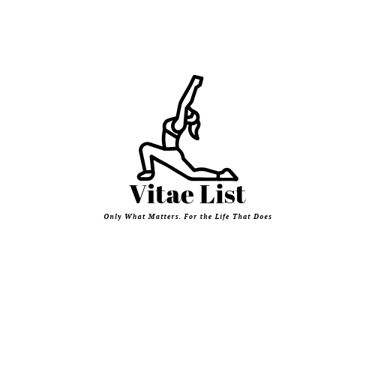Innovative Recovery Gear: From Percussive Therapy to Stretching Tools
Discover the latest innovative recovery gear for athletes and fitness enthusiasts. From percussive massage guns to advanced stretching tools, explore how modern recovery tech can boost performance, reduce soreness, and speed up healing.
FITNESS GEAR
Vitae List
9/7/20254 min read


Innovative Recovery Gear: From Percussive Therapy to Stretching Tools
Amazon Associates Disclaimer
This article contains affiliate links. As an Amazon Associate, Vitae List earns from qualifying purchases. These links help support our site at no extra cost to you. We only recommend products we believe may add value to your health and recovery journey.
Introduction: Why Recovery Deserves Innovation
Recovery used to mean little more than rest, ice, and maybe a foam roller. But today’s athletes and fitness enthusiasts understand that recovery is a critical part of performance. Without proper recovery, you’re more likely to face injuries, chronic soreness, or plateaus in progress.
Fortunately, innovation has reached the recovery space. Modern tools—ranging from percussive massage guns to advanced stretching devices—can speed healing, improve mobility, and keep you performing at your best.
Let’s explore some of the most innovative recovery gear available today and how it can help you feel stronger, recover faster, and move better.
1. Percussive Therapy Devices (Massage Guns)
Massage guns like the Theragun or Hypervolt have exploded in popularity—and for good reason. They deliver rapid bursts of pressure deep into the muscle, mimicking the effects of a professional massage.
Benefits of Percussive Therapy:
Reduces delayed onset muscle soreness (DOMS)
Increases circulation and lymphatic flow
Helps break up adhesions and tension
Enhances range of motion
These tools are particularly helpful after intense training sessions or before a workout to activate muscles.
Our pick: TheraGun Mini (2nd Generation) by Therabody - https://amzn.to/4paF2hJ
2. Compression Recovery Systems
Compression boots and sleeves—such as FitKing or Air Relax—use dynamic air pressure to massage the legs, flushing out metabolic waste while promoting fresh blood flow.
Why Athletes Love Them:
Speeds up recovery after endurance events
Reduces swelling and inflammation
Provides a “hands-free” recovery session at home
Compression recovery systems are especially popular among runners, cyclists, and team sport athletes.
Our pick: FIT KING Air Compression Leg Massager with Heat - https://amzn.to/3VBwl2h
3. Cryotherapy and Cold Exposure Tools
Cold therapy isn’t new, but new gear makes it more convenient. Portable ice baths, cold plunge tubs, and localized cryotherapy devices bring pro-level cold recovery to home gyms.
Key Benefits:
Reduces muscle inflammation
Supports mental resilience
Enhances circulation when combined with contrast therapy (alternating hot and cold)
Even a compact ice barrel or cold plunge tub can upgrade your recovery routine significantly.
Our pick: The Ice Pod Pro, set up is a breeze and holds temps nicely. https://amzn.to/4nkbXPb
4. Infrared and Heat Therapy Devices
While cold helps reduce inflammation, heat supports blood flow and relaxation. Infrared therapy mats, saunas, and heating pads deliver soothing warmth that penetrates muscles and joints.
Recovery Benefits:
Relieves muscle stiffness
Accelerates healing by increasing circulation
Promotes relaxation and better sleep
Infrared sauna blankets, in particular, have become popular for home recovery routines.
Our pick: X-Vcak Sauna Blanket - https://amzn.to/4pa5aJD
5. Innovative Stretching Tools
Static stretching has evolved into dynamic, tech-assisted recovery. Tools like the Backmate, stretch straps, and mobility wheels are designed to improve flexibility and spinal alignment.
Why They Work:
Support deeper, safer stretching
Target hard-to-reach areas like the back and hips
Improve mobility for better movement patterns
Pairing stretching tools with a consistent mobility routine can reduce injury risk and improve overall performance.
Our pick: Trideer Stretching Strap, no frills just works great with little cost - https://amzn.to/4gc9cNy
6. Smart Recovery Wearables
Recovery doesn’t stop when you leave the gym. Wearable tech—like the FitBit, Whoop Band, and Garmin fitness watches—track recovery markers such as heart rate variability (HRV), sleep cycles, and stress load.
Advantages:
Provides data-driven recovery insights
Tracks sleep quality and readiness
Helps balance training intensity with recovery needs
These wearables take the guesswork out of when to push harder and when to pull back.
Our picks: The ultimate is the whoop band but it can be pricey. We use both the Whoop and the Fitbit Versa 4. They both work great but the Whoop has more granular data for the avid athlete.
Whoop Band - https://amzn.to/42jYbns
FitBit Versa 4 - https://amzn.to/4glGV7d
7. Mobility and Myofascial Release Tools
Foam rollers have come a long way. Now, vibrating foam rollers, textured massage balls, and mobility sticks help target fascia more effectively.
Best Uses:
Pre-workout warm-ups to prime muscles
Post-workout recovery to release tension
Injury prevention by keeping connective tissue supple
Advanced rollers with vibration settings can penetrate deeper and stimulate blood flow better than traditional foam.
How to Choose the Right Recovery Gear
Not every athlete needs every device. The best gear depends on your goals, training style, and recovery needs:
For heavy lifters: Percussive massage guns + mobility tools
For endurance athletes: Compression systems + stretching aids
For stress-prone individuals: Infrared therapy + mindfulness recovery tools
For data-driven trainers: Smart wearables + HRV trackers
Think of recovery gear as your personal “support staff”—each tool has a role, but the best results come from combining them strategically.
Lifestyle Habits That Maximize Recovery Gear
Even the best technology can’t replace recovery basics:
Sleep: 7–9 hours of quality sleep is the foundation of all recovery.
Hydration: Muscles recover faster when properly hydrated.
Nutrition: Protein, electrolytes, and anti-inflammatory foods enhance healing.
Consistency: Regular use of recovery tools works better than occasional sessions.
Conclusion: The Future of Recovery Is Here
From massage guns to smart wearables, today’s innovative recovery gear empowers athletes to take charge of their performance. These tools don’t just speed up healing—they help prevent injury, enhance mobility, and build resilience.
If you want to train harder, feel better, and recover faster, integrating innovative recovery gear into your routine may be the missing piece.
Your muscles don’t just need work—they need care. Invest in your recovery, and your performance will follow.
